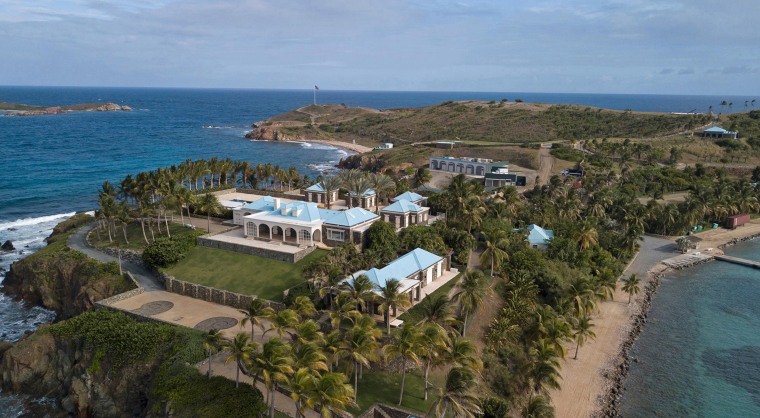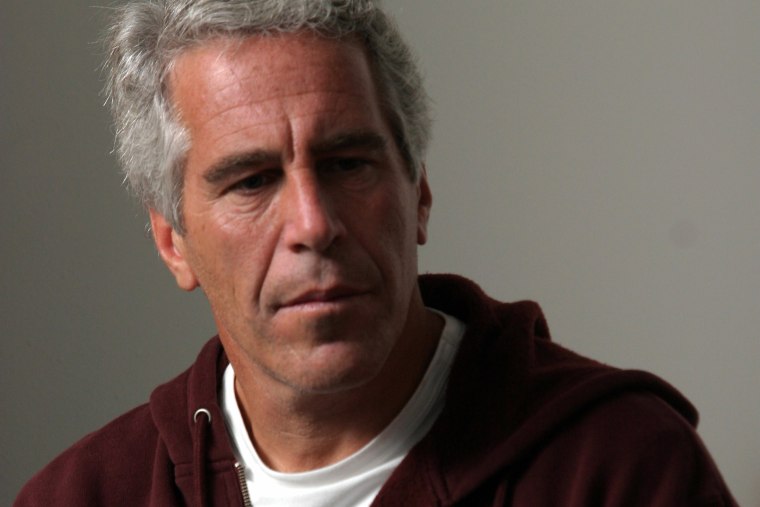The estate of Jeffrey Epstein has agreed to pay the U.S. Virgin Islands more than $105 million to settle a lawsuit alleging that he used the territory as the base of an extensive sex trafficking operation.
The suit is being settled nearly three years after Denise N. George, the attorney general of the U.S. territory, sued Epstein, a New York financier who died by suicide in 2019 as he was awaiting trial on sex trafficking charges.
"This settlement restores the faith of the people of the Virgin Islands that its laws will be enforced, without fear or favor, against those who break them," George said in a statement Wednesday. "We are sending a clear message that the Virgin Islands will not serve as a haven for human trafficking."
Daniel Weiner, a lawyer for the estate, said that the settlement does not include any admission of liability or fault and that the co-executors deny any allegations of wrongdoing.
"The co-executors ultimately concluded that the settlement is in the best interests of the estate, including its creditors and claimants, to avoid the time, expense and inherent uncertainties of protracted litigation," Weiner said. "The settlement is consistent with the co-executors’ stated intent and practice since their appointments to those roles — to resolve claims related to any misconduct by Jeffrey Epstein in a manner sensitive to those who suffered harm."
Under the terms of the settlement, Epstein's estate will pay the Virgin Islands $105 million in cash, as well as half of the proceeds from the sale of Little Saint James, one of two private islands Epstein owned, George's office said in a statement. The estate also agreed to pay $450,000 to repair environmental damage around Great Saint James, the other Epstein-owned island.

The lawsuit, filed in January 2020, alleged that Epstein created a network of companies and conspired with others to help him carry out and conceal the alleged sex trafficking scheme. The so-called Epstein Enterprise transported dozens of women and girls as young as 12 to his estate on Little Saint James, where they were forced to engage in sexual acts, the suit said.
"Epstein engaged in a pattern and practice of trafficking and abusing young women and female children on this private, secluded island of Little St. James where Epstein and his associates could avoid detection of their illegal activity from Virgin Islands and federal law enforcement and prevent these young women and underage girls from leaving freely and escaping the abuse," the suit said.
Epstein, who was found hanged in the Metropolitan Correctional Center in Manhattan in August 2019, was previously charged by New York prosecutors on sex trafficking and conspiracy charges. He was facing up to 45 years in prison if he were convicted.
The prosecutors in that case said Epstein, who was 66 at the time of his death, sexually abused dozens of underage girls at his properties in New York and Florida in the early 2000s. He was also accused of paying many of his victims to recruit others, allowing him to build a vast network of women to exploit.
Epstein bought Little Saint James, off St. Thomas, for $7.95 million in 1998, NBC News reported. He went on to build a vast estate featuring a 24,000-square-foot private residence, two pools, a spa and a blue-striped structure that drew intense scrutiny online.


